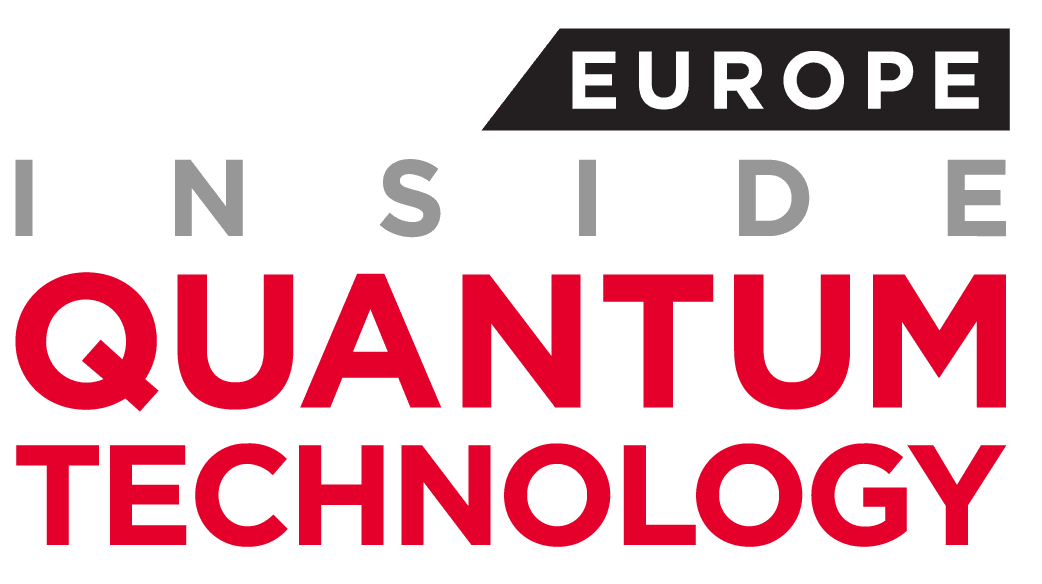
Panel: VCs and the quantum sector in Europe
Ekaterina Almasque is a General Partner at OpenOcean, a venture capital firm founded by entrepreneurs behind MySQL. OpenOcean invests in enabling technologies for the data-driven future, such as artificial intelligence, quantum computing, data infrastructure, and automation, with its main focus on B2B software in Europe. Ekaterina is on the board of IQM, the European leader for superconducting quantum computers. Before joining OpenOcean, she was a Managing Director of the Samsung Catalyst Fund in Europe, Samsung’s Electronics $500M venture capital multistage investment fund focused on core technology areas including robotics, autonomous driving, artificial intelligence, digital health, data infrastructure, and device-level technologies. She led investments across Europe in companies such as GraphCore, Mapillary, AIMotive, Sentiance, and Quobyte, as well as several venture funds. For over ten years prior to that, Ekaterina was part of several corporate and independent venture capital funds in Silicon Valley and Europe.

Panel: Accelerating quantum technologies for communication and sensing
David Awschalom is the Liew Family Professor and Deputy Director of the Pritzker School for Molecular Engineering at the University of Chicago, a Senior Scientist/Quantum Group Leader at Argonne National Laboratory, and Director of the Chicago Quantum Exchange. He is also the inaugural director of Q-NEXT, one of the new US Department of Energy Quantum Information Science Research Centers.
Before arriving in Chicago, he was the Director of the California NanoSystems Institute and Professor of Physics, Electrical and Computer Engineering at the University of California – Santa Barbara. He had served as a Research Staff member and Manager of the Nonequilibrium Physics Department at the IBM Watson Research Center in Yorktown Heights, New York. He works in the emerging fields of spintronics and quantum information engineering, where his students develop new methods to explore and control the quantum states of individual electrons, nuclei, and photons in the solid-state.
His research includes implementations of quantum information processing with potential applications in computing, imaging, and communication. Professor Awschalom received the American Physical Society Oliver E. Buckley Prize and Julius Edgar Lilienfeld Prize, the European Physical Society Europhysics Prize, the Materials Research Society David Turnbull Award and Outstanding Investigator Prize, the AAAS Newcomb Cleveland Prize, the International Magnetism Prize, and the Néel Medal from the International Union of Pure and Applied Physics, and an IBM Outstanding Innovation Award.
He is a member of the American Academy of Arts & Sciences, the National Academy of Sciences, the National Academy of Engineering, and the European Academy of Sciences.

Panel: Quantum-safe solutions
Jaya Baloo, currently Chief Information Security Officer (CISO) at Avast Software has worked in the cybersecurity area for nearly 20 years. She won the Cyber Security Executive of the year award, Top 100 CISOs, and is one of the inspiring 50 in the Netherlands. Jaya frequently speaks at security conferences on subjects around lawful interception, mass surveillance, cryptography. She is a faculty member of the Singularity University and a member of various infosec boards. Jaya is a quantum ambassador of KPN Telecom and a Vice-Chair of the Quantum Flagship Strategic Advisory Board of the EU Commission.
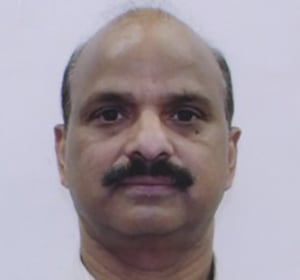
Panel: User experiences: Pharma and chemicals industry
Govinda Bhisetti is a Principal Investigator and Head of the Computational Chemistry department at Biogen since 2014. Previously, he worked at Vertex Pharmaceuticals for 22+ years where he led drug design efforts on several drug discovery projects. His research at Vertex led to the discovery of three FDA approved drugs: Agenerase, Lexiva, and Incivek. He is a co-inventor of these drugs and named inventor on 26 patents. He has also published 74 research papers including review articles and book chapters. His current activities include the application of state of the art computational methods in the discovery of novel drugs for CNS diseases.
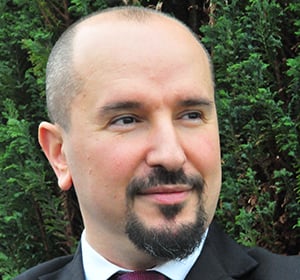
Panel: User experiences: Aerospace and automotive
Paolo Bianco got graduated in Aeronautical Engineering in Turin (Italy) after having graduated as Master of Science in Mechanical Engineering at Cranfield University in the UK and having studied in prestigious technical universities across Europe. He started working with European Commission (EC) before graduation when he co-founded a European Economic Interest Group to run projects in response to EC thematic network calls.
After a period as a project management consultant, Paolo started his career in space at CGS (now OHB), Milan, Italy, then he joined Astrium, now Airbus, in Portsmouth, UK. In his role of space system engineer, Paolo has designed systems for Earth orbit and for interplanetary missions. Currently, most of such systems are flying while or being finalised for flight. In parallel as a technologist, Paolo has developed a wide range of diverse technologies for space and aerospace applications. This eventually became his main job as Global R&T Cooperation Manager for Airbus Defence and Space, with remit on UK and Asia-Pacific.
In 2015 he got involved in Quantum Technologies (QTs), investigating and assessing on how to use them in Airbus operation and products of Defence and Space division, where he currently works. He provided his view on QTs application to the European Parliament (STOA) and the House of Parliament (POST), consultancy research definition to the European Commission for the deployment of the QT Flagship (High-Level Steering Committee member). Currently, he is providing inputs to European Space Agency for QT adoption (as QT Space Report contributor).
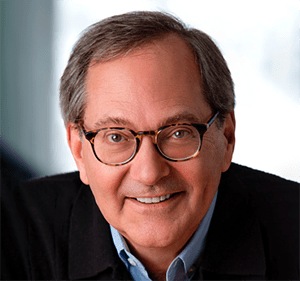
Christopher Bishop is a technology futurist, TEDx speaker, LinkedIn Learning instructor, and former IBMer. He is passionate about the power of emerging technologies to positively transform business and culture.
Chris writes and speaks on future technologies including AI, crypto assets, blockchain, augmented and virtual reality, and robotics. He recently recorded a live-action course for LinkedIn Learning called “Future-proofing your data science career” – due to be released in April 2020.
Other notable engagements include a Career Labs Workshop in June 2019 at the Open Data Science Conference in New York City titled “How to succeed at data science jobs that don’t exist yet.” In addition, Chris co-authored a white paper with MIT Media Lab professor Sandy Pentland titled Blockchain+AI+Human”, describing the business possibilities as well as the powerful socio-cultural implications of connecting AI and blockchain.
In September 2018, Chris gave a talk at Accelerate AI, Europe 2018 in London titled “Your brain is too small to manage your business” describing the increasing commoditization of AI. He also moderated a series of Lightning Talks last year at the AR in Action Leadership Summit at the MIT Media Lab and delivered the Closing Keynote at the AI World Forum in Toronto in November 2018.
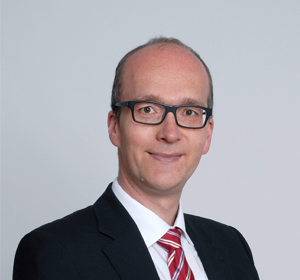
Panel: Quantum sensor evolution
Professor Kai Bongs is Director of the UK Quantum Technology Hub for Sensors and Metrology, where he drives the translation of gravity sensors and ultra-precise clocks into technology and applications in climate, communications, energy, transport and urban development. Professor Bongs is Editor-in-Chief for the European Physical Journal – Quantum Technologies and UK representative on the Quantum Community Network of the European Quantum Flagship initiative. His work on translating cold atom quantum technologies to applications has been recognised by a Royal Society Wolfson Research Merit award and the 2019 Dennis Gabor Medal and Prize of the Institute of Physics.
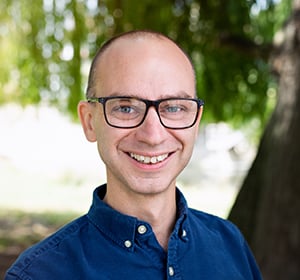
Panel: Quantum emulators and hybrid systems
Steve founded Riverlane because he believes that bringing together pioneers in software, algorithms, and architectures in one company is the only path to commercially useful quantum computers. His dream is to make quantum computers as transparent and well known as RaspberryPi.
Steve is a global leader in the commercialization of quantum computers and sits on the UK government’s Quantum Computing Expert Group. He spent almost a decade in the intelligence community and as a Senior Research Fellow at the University of Cambridge leading major research projects in quantum computing.
Steve holds a Ph.D. in quantum information from the University of York. He is a big music fan and spent much of his youth playing the saxophone in jazz, funk, and soul bands.
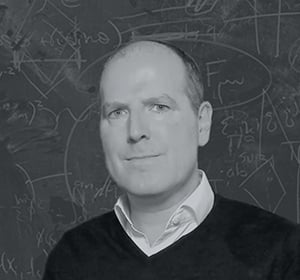
Panel: Pharma and chemicals industry
Benno is the founder and CEO of Qu & Co, a quantum-algorithm and -software development business focused on chemistry and materials-science. He studied experimental quantum-physics at Delft University in the Netherlands, graduating in 1998 on quantum-dot research in the quantum-transport group (now QuTech) under Leo Kouwenhoven (now Microsoft). Benno is also a serial entrepreneur, experienced boardroom consultant and as our CEO dedicated to translating emerging quantum-technologies into high-value industry-relevant solutions. He has over 15 years of business development, B2B commercial and investment experience and was an advisor to a multitude of technology businesses. He is the founder of a local Dutch strategy consulting boutique with 25 consultants and previously worked a.o. at the Boston Consulting Group, in risk management at ING Bank and in private equity at Alpinvest Partners. Benno holds an MBA cum laude from INSEAD in France.

Panel: Keynote
Harry Buhrman is a professor of algorithms, complexity theory, and quantum computing at the University of Amsterdam (UvA), group leader of the Quantum Computing Group at the Center for Mathematics and Informatics (CWI), and executive director of QuSoft, a research center for quantum software, which he founded in 2015. In 2020 he was elected as a member of The Royal Netherlands Academy of Arts and Sciences.
He built the quantum computing group at CWI, which was one of the first groups worldwide and the first in The Netherlands working on quantum information processing. Buhrman’s research focuses on quantum computing, algorithms, and complexity theory. He co-developed the area of quantum communication complexity (quantum distributed computing), and demonstrated for the first time that certain communication tasks can be solved (exponentially) more efficient with quantum resources. Buhrman co-developed a general method to establish the limitations of quantum computers, and a framework for the study of quantum algorithms.
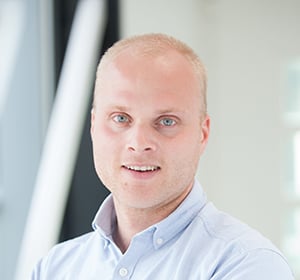
Panel: Cryo, control, and subsystems for quantum computing
Niels (CEO Qblox) specializes in controlling quantum computers performing the first feedback on solid-state qubits in 2012. His Ph.D. research with Leonardo DiCarlo at TU Delft has led to more than ten scientific publications centered around fault-tolerant quantum computing with superconducting circuits. The work at QuTech enabled the control of setups with up to 50 qubits and has now found its way to the market via the company Qblox. With Qblox’s new and industrialized generation of control stacks, he is paving the way for quantum computer integrators worldwide to reach practical applications in quantum computing. Niels is co-founder and CEO of Qblox, he is responsible for General Management, Sales, Fundraising, IP growth, and HR.
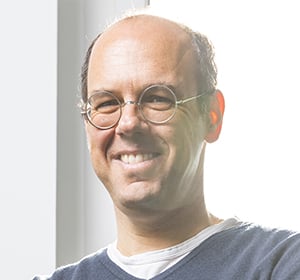
Panel: Quantum Policy in Europe
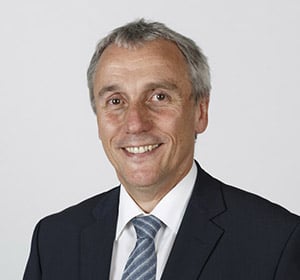
Panel: Quantum-hubs in Europe
Philippe Chomaz, former student of Ecole Normale Superieure (Paris), has been CNRS researcher at Orsay, visiting scientist at Berkeley and CEA researcher at Caen. He next served as deputy director of GANIL (Large Heavy Ion National Accelerator) and director of CEA-Irfu (Institute of Research into the Fundamental Laws of the Universe) at Saclay.Since 2016, he is the Scientific Director of CEA fundamental research division (50 laboratories and 6270 staff). He published about 200 papers in nuclear, quantum and statistical physics and gave over 100 invited talks, as well as radio and television interviews. He has been President of SFP nuclear physics division, of European Center ECT, of the Physics committee in the French research agency, of the large laboratories at CERN and Secretary of the 2012 CERN European Strategy. He is now leading the international cooperation of the quantum flagship.
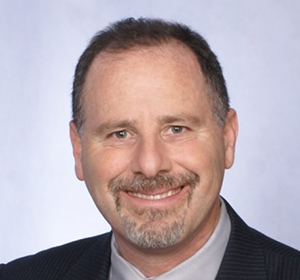
Panel: User experiences: Financial services industry
Jeffrey has 30 years in IT Management Consulting and IT Professional Services. He built businesses as an IBM Executive, Hewlett Packard Consulting Partner, McKinsey & Company Associate Principal, Siemens IT Solutions & Services Managing Vice President & KPMG Senior Manager.
Jeffrey started a quantum computing startup in December 2018 that specializes in financial portfolio optimization using classical and quantum computers, quantum secure communications, and enterprise IT management.
Jeffrey has a Masters in Management in management & strategy, finance, from the J.L. Kellogg Graduate School of Management, a bachelor’s in arts in economics from the University of Chicago, and completed coursework towards a Ph.D. in Management Science from IIT Stuart School of Business.
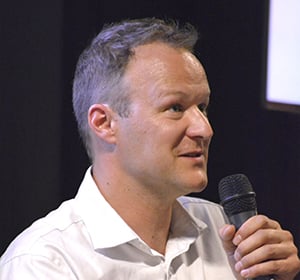
Panel: Quantum-hubs in Europe
Dr Andrew Collins is currently a lecturer and enterprise developer for the Quantum Technology Enterprise Centre (QTEC) at the University of Bristol. He is a visiting professor at Nagaoka University of Technology and a co-founder of SurfaceRF. He has a background in nanomaterials chemistry and has published over 41 papers in the field along with two books. Since 2016 he has supported over 40 fellows going through the QTEC business development programme aimed at taking academics in the quantum engineering and emerging technology sector and helping them to found companies. To date, the programme has seen the incorporation of 23 companies who have raised £18.5M in funding (two thirds private investment) and generated over 96 jobs.
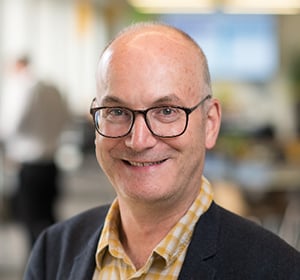
Panel: Keynote: Sponsor
Paul Crane leads a team of researchers who are defining technologies to deliver BT’s fixed, mobile and convergence strategies. Our wireless and mobile research is focused on exploiting LTE, Wi-Fi and helping the industry move to a full 5G future. We are exploring wireless and optical technologies which could provide a step change in capacity and economic coverage. The way we build networks is fundamentally changing. Our research is focussed on the application of the latest computer science technologies to networks; virtualisation, programmability, machine learning, and artificial intelligence.
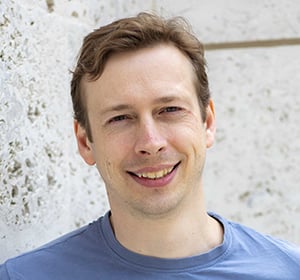
Panel: User experiences: Pharma and chemicals industry
Toby Cubitt’s research straddles theoretical physics, mathematics, theoretical computer science, information theory, and much of Europe. He has published papers in the top-tier international journals and conferences across all four of these fields, including highly acclaimed publications in Nature, Science, and Proceedings of the National Academy of Sciences.
Toby holds undergraduate degrees from the University of Cambridge, and a Ph.D. from the Max Planck Institute for Quantum Optics in Munich. He is Reader (Associate Professor) in Quantum Information at UCL, and head of the Quantum group in the Department of Computer Science there. He holds a University Research Fellowship from the Royal Society, was awarded the 2017 AHP-Birkhauser Prize, and a Whitehead Prize by the London Mathematical Society in 2019 for “outstanding contributions to mathematical physics, in particular the interconnections between quantum information, computational complexity, and many-body physics.”
In 2018, Toby co-founded PhaseCraft together with Dr. Ashley Montanaro and Prof. John Morton: a quantum software startup focused on tackling the biggest challenge of developing practical applications of near-term quantum computers, from developing new underpinning mathematical techniques through to software implementations on real quantum hardware.
When he’s not pursuing research in mathematical physics or developing near-term applications of quantum computers, he can often be found designing science activities for 3-5 year-olds, helped by constructive criticism from his daughters.
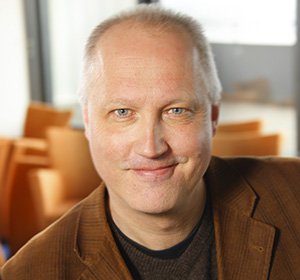
Kees Eijkel is a Business Development Director at QuTech, the Delft quantum institute founded by the Technical University of Delft and TNO. Before that, he was president of Kennispark Twente, the science park and innovation ecosystem in and around the University of Twente and Saxion University of Applied Sciences, and technical-commercial director of the MESA+ Institute of Nanotechnology. His education is in Mathematics (MSc University of Amsterdam) and Engineering (Ph.D. University of Twente). Kees has held several positions in organizations to support commercialization and startups, including public venture funds.
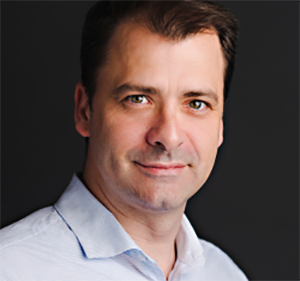
Panel: The Debate on Quantum Advantage
Joseph Emerson is a Faculty member at the Institute for Quantum Computing and the Department of Applied Math at the University of Waterloo, and is also Founder and CEO of the software start-up Quantum Benchmark Inc. Professor Emerson’s pioneering research in quantum computing has led to the current industry-standard methods for assessing quantum hardware errors and optimizing algorithm performance, which are essential technologies for quantum computing to achieve its disruptive potential. His start-up has headquarters in Kitchener-Waterloo, Canada, and offices in Berkeley, California. Quantum Benchmark launched its True-Q software system in March 2018 and has already established market leadership in assessing and optimizing quantum computer performance, including sales to leading quantum hardware providers and quantum algorithm developers.
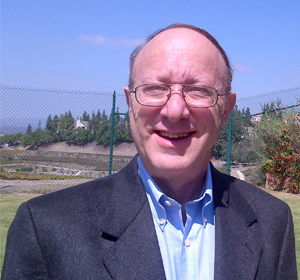
Panel: Evolution of operating systems for quantum Computers
Doug Finke is a Consulting Analyst to Inside Quantum Technology. He is also the founder of the Quantum Computing Report where he applies his wide breadth of experience to help accelerate the deployment of quantum computing. Doug has been involved in the computer, semiconductor, and storage industry for over 30 years and has helped drive the growth of many new technologies during this period. Doug believes that many of the new technology growth patterns he has seen within the computer industry will reoccur as the quantum technology field evolves. Doug has served as the Chief Operating Officer of the startup company, IntelliSense, where he helped sell the company at a valuation of $750 million. As Vice-President of Marketing and Business Development at the semiconductor startup ChipWrights, Doug also helped raise $25 million in venture capital funding. Other important firms for whom Doug has worked include Intel, IBM, Standard Microsystems, and HGST/Western Digital. Doug holds degrees in computer engineering and management from the University of Illinois and MIT respectively.
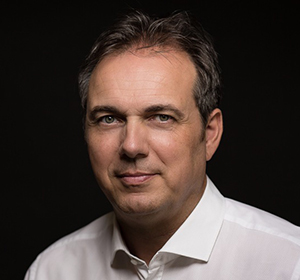
Panel: Markets for QKD systems
Mr. Axel Foery joined ID Quantique in February 2020 bringing deep experience in the IT, telecommunications, and security fields. He started his career in the telecommunications market working for Deutsche Telekom, Nokia, and later Cisco where he built the IP Infrastructure we everyday use. During 16 years at Cisco, he successfully held leadership roles throughout Europe and was responsible for the launch of new technologies and go-to-market approaches for major global markets and verticals.
After working at Cisco, Axel became the CEO of Keymile, a Swiss and German network infrastructure vendor, serving the Energy, Railway, Authority, and Carrier markets. There, he implemented a new company strategy focusing on the mission-critical market. To cover the strong security needs of this market, he drove the joint development of a new product with IDQ and Keymile/ABB in 2016. Later, he moved into the Utility market to build the Global B2B Solution Business GTM for E.ON, a major European Utility company. Before joining ID Quantique, Axel was a strategic technology advisor in different Private Equity investments.
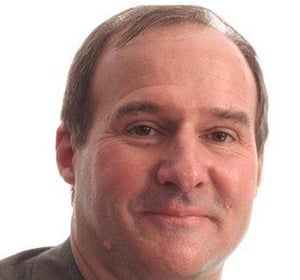
Panel: Jobs and education in the quantum technology sector
Terrill Frantz is the lead for the Next Generation Technologies / Quantum Information Science master-degree program at Harrisburg University of Science and Technology, where he is an Associate Professor of eBusiness and Cybersecurity. He has extensive classical-computer software experience reaching over 45 years of hands-on programming and management, mainly in the international financial services industry, and he has recently pivoted into Quantum Computing. He transitioned from industry to academics in 2002, which includes 8-years as a professor of management at Peking University, in Shenzhen China. He holds a Ph.D. from the School of Computer Science at Carnegie Mellon University, and an EdD in Organization Change from Pepperdine University.
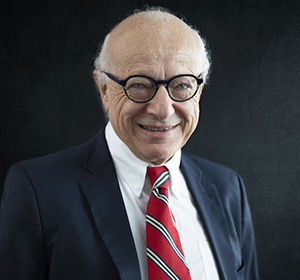
Lawrence Gasman is the founder and President of Inside Quantum Technology. He has authored industry analysis reports on quantum key distribution, quantum computing, quantum networks, and quantum sensors and numerous studies on high-speed interfaces for high-performance computers. He also served on a panel at the Q2B conference in 2017; the first-ever business-oriented quantum computing conference. Lawrence has been tracking the commercialization of new technologies for 35 years and has written four books in this area. His consulting work has included both major multinationals and high-tech start-ups as clients and he has also carried out due diligence work for investment banks, venture capitalists, and leading management consulting firms.

Panel: User experiences: Aerospace and automotive
Koen Groenland is Quantum Innovation Officer for QuSoft, the Amsterdam-based Research Center for Quantum Software. In this role, his main task is to make QuSoft’s innovative research useful for commercialization and for society. He is responsible for training programs, education, and workshops, as well as setting up new R&D collaborations and events that cater to the quantum ecosystem.
Koen has a background in theoretical physics. He obtained his Ph.D. from the University of Amsterdam on the topic of algorithms for noisy, small-scale quantum computers. He then continued this line of research as a post-doc at the same university. His research interests are on low-level software that optimally uses the native strengths of superconducting circuits, trapped ions, or ultracold atoms. More recently, his focus is drawn to finding novel commercial use-cases for quantum technology, and how these can be integrated in existing business architectures.
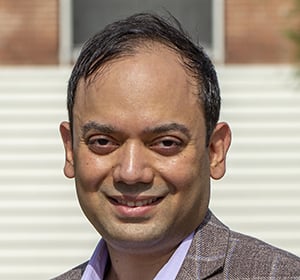
Panel: Evolution of the Quantum Internet
Saikat Guha is an Associate Professor at the University of Arizona, James C. Wyant College of Optical Sciences, starting July 2017, and the director of the NSF Center for Quantum Networks (CQN). Saikat received his Bachelor of Technology degree in Electrical Engineering from Indian Institute of Technology, Kanpur in 1998, and his S.M. and Ph.D. degrees in Electrical Engineering and Computer Science from Massachusetts Institute of Technology in 2004 and 2008, respectively. From 2008 to 2017, he worked for Raytheon BBN Technologies, where in his most recent role as Lead Scientist, he led various sponsored projects funded by DARPA, ONR, NSF, DoE, and ARL, in topics surrounding quantum enhanced photonic information processing. He was one of the founding members of the Quantum Information Processing group at BBN, formed in 2009.
Saikat’s research interests are in the quantum limits of optical communications and quantum-secured communications (rate) and optical sensing (resolution)—both in the evaluations of these fundamental limits using tools from quantum information and estimation theory, as well as in the associated circuit synthesis problem, that of trying to piece together familiar classical and non-classical optical building blocks to realize transmitters and receivers needed to attain those limits. He is interested in the design of quantum repeaters for long-distance entanglement distribution. He has also been lately interested in continuous variable photonic quantum computing, and quantum networks.
Saikat received the Raytheon 2011 Excellence in Engineering and Technology Award, Raytheon’s highest technical honor, for work his team did on the DARPA-funded Information in a Photon program. He was a co-recipient of an honorable mention in NSA’s 2016 Cybersecurity Best Paper Award for a paper on Quantum-Secure Covert Communication on Bosonic Channels, which he supervised. He was a recipient of Anita Jones Entrepreneurial Award 2013 from BBN Technologies, a co-recipient of a NASA Tech Brief Award for his work on Phase-conjugate receiver for Gaussian-state quantum illumination, and received the Raymie Stata Award for outstanding performance as Teaching Assistant for Signals and Systems, Fall 2005, from the Department of Electrical Engineering and Computer Science, MIT. Saikat was a member of India’s first team to the International Physics Olympiad at Reykjavik in 1998, where he received an Honorable Mention and the European Physical Society (EPS) Award for the experimental component. He is a Senior Member of the IEEE. Prof. Guha also has appointments with the Department of Electrical & Computer Engineering, and Program in Applied Mathematics at the University of Arizona. In 2020, Saikat and his team were awarded an NSF Engineering Research Center. The center focus is on Quantum Networks (CQN).
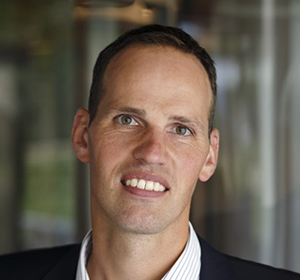
Panel: Opening keynote
Ronald Hanson (1976) focusses on exploring and controlling quantum-entangled states with the long-term goal of exploiting these in future quantum technologies such as quantum computing and quantum internet. His research combines quantum optics, solid-state physics, nuclear magnetic resonance, quantum information theory and nanofabrication. In 2014 his group made headlines by teleporting quantum data between electrons on distant solid-state chips. In 2015 he ended a decades-long scientific quest by performing the first loophole-free Bell test. In 2018 his group achieved the important milestone of generating quantum entanglement faster than it got lost. In the coming years he aims to build on these results to demonstrate the fundamentals of a future quantum internet, with a rudimentary network planned between several cities in the Netherlands.
Ronald is one of the four founding professors of QuTech (2013). He obtained his MSc degree in Applied Physics at the University of Groningen (1999), followed by a year in Japan. He obtained his PhD degree (cum laude) at Delft University of Technology in 2005 with Leo Kouwenhoven. After a postdoc at the University of California in Santa Barbara with David Awschalom, he started his own research group at Delft, where he was appointed Antoni van Leeuwenhoek Professor in 2012.
Ronald has received several awards for his work, among which the Ammodo KNAW Award (2015), the Huibregtsen Award for Excellence in Science and Society (2016), the John Stewart Bell Prize (2017). In 2019 he received the Spinoza Prize, the highest scientific award in the Netherlands. He has been elected member of the Royal Holland Society of Sciences and Humanities (KHMW) since 2018 and of the Dutch Royal Academy of Sciences (KNAW) since 2019.
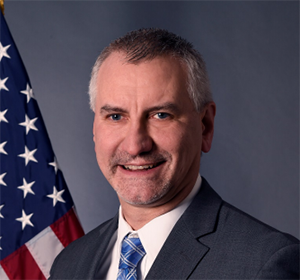
Panel: User experiences: Aerospace and automotive
Dr. Michael J. Hayduk is the Deputy Director, Information Directorate, Air Force Research Laboratory, Rome, New York. The directorate’s mission is to lead the development and integration of Air Force warfighting information technologies for Command, Control, Communications, Computers, Intelligence, and Cyber. Dr. Hayduk plays a key role in overseeing an annual budget of over $1.8 billion, leading the activities of over 1,200 scientists, engineers, administrative, and support personnel.
For the past eight years, Dr. Hayduk was the Chief of the Computing and Communications Division, Air Force Research Laboratory, Information Directorate, Rome, New York. The division’s mission is to lead the discovery, development, and integration of affordable computing, networking, and communications technologies for our air, space, and cyberspace forces.
Dr. Hayduk was responsible for defining, planning, budgeting, advocating, managing, and directing the execution of the research program and leads all aspects of personnel management within the division Dr. Hayduk joined the Air Force through the Palace Knight educational program in 1991 and
was assigned to Rome Laboratory. Upon completion of his graduate studies, he served as a research engineer where he developed ultrafast solid-state pulsed lasers for optical communication systems.
As a team leader, Dr. Hayduk led the development of microwave photonic components and subsystems for use in radio frequency sensors. Dr. Hayduk became the acting Chief for the Electro-Optic Components Branch in 2007 in the AFRL Sensors Directorate which developed components and subsystems for advanced radio frequency and electro-optic AF sensor systems.
In 2007 he became the Chief of the Emerging Computing Technology Branch in the AFRL Information Directorate which performs fundamental and exploratory research and development in nano computing, quantum computing, computational intelligence, and optical computing for advanced computing architectures. Dr. Hayduk has published more than 50 journal and conference papers and holds
one US patent.
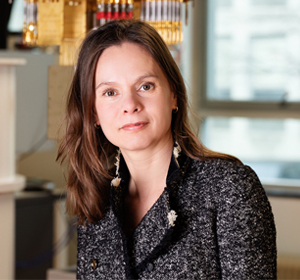
Special advisor to the Minister of Economic Affairs and Climate Policy on Quantum Technologies.
Panel: Quantum Policy in Europe
Freeke Heijman is director of the Quantum Delft ecosystem and founded Quantum Delta Netherlands, the national initiative that was launched in September with a startup grant of 23 ME. She embarked in the field as a strategist from the Ministry of Economic Affairs by supporting the establishment of QuTech and the EU flagship program. In her role as national liaison, she is responsible for the Dutch national policy and investments in Quantum Technology and the national programs to stimulate startups and commercialization. She has extensive experience in European and national space, industrial and innovation policies including in the role of head of the unit. She graduated from the TU Delft Policy Analysis and Systems Engineering department in 1999 and started her career at KPN Research. Her passion is to drive innovation at the crossroad of academia, business, and government.
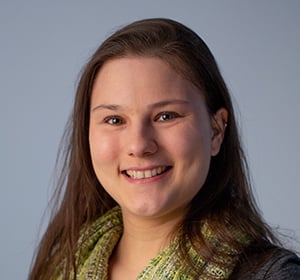
Panel: Evolution of operating systems for quantum Computers
Bettina Heim is a quantum physicist and software engineer in the Microsoft’s Quantum Systems group. She leads the Q# language design and is the software engineering manager for the Q# compiler and runtime team. Prior to joining Microsoft she worked on quantum algorithms, adiabatic quantum computing, discrete optimization problems, and the simulation of quantum computing devices.
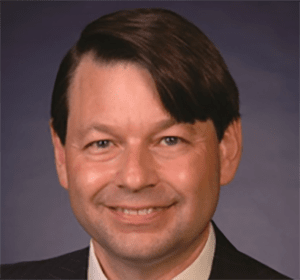
Panel: Quantum sensor evolution
A world-class expert in low pressure and vacuum metrology, Dr. Hendricks serves as the Deputy Program Manager for NIST on a Chip (NOAC), an innovative approach that seeks to utilize fundamental physics to develop quantum-based sensors and standards. He serves as the Scientific Director of IUVSTA (International Union of Vacuum Science, Technique, and Application) an organization representing nearly 15,000 physicists, chemists, materials scientists, engineers, and technologists who are linked through their common use of vacuum. Dr. Hendricks received his M.A. and Ph.D. in Physical Chemistry from Johns Hopkins University and his B.S. in chemistry from Penn State University. Dr. Hendricks has over 30 years of vacuum science and technology experience and has authored over 60. He is a two-time winner of the US Department of Commerce Gold Medal, one of which was for an innovative quantum-based pressure standard.
Dr. Hendricks has demonstrated leadership and chairs national and international vacuum standards meetings and symposia. His leadership is nationally and internationally recognized and is sought out on a variety of vacuum standards meetings and symposia program committees. He currently serves as the Chair of IMEKO TC16, AVS Recommended Practices Committee, and AVS Publication Committee.

Panel: Quantum-safe solutions
Bruno Huttner is the Director of Strategic Quantum Initiatives and a Quantum Key Distribution Expert at ID Quantique. Bruno joined ID Quantique in 2014, participating in business development and product
management in the Quantum Security division, which develops next-generation encryption, and especially quantum key distribution systems.
He then started the space programs, aiming at developing quantum key distribution globally, using satellites. Bruno is an engineer (Ecole Centrale Paris) and a physicist (Ph.D. from the Technion, Israel Institute of Technology). During his career, both in academia and in business, Bruno wrote many scientific papers and gave lectures at many international conferences.
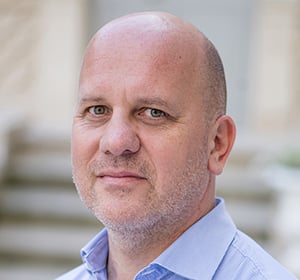
Panel: VCs and the quantum sector in Europe
Dr. Christophe Jurczak is co-founder and managing partner at Quantonation, the first early-stage venture fund dedicated to Deep Physics startups with a focus on the emerging and disruptive field of Quantum Technologies. Quantonation has closed 12 investments so far in Europe and North America, including leading players such as Pasqal, Orqa Computing, Multiverse, and Kets.
Christophe is an associate at the Toronto-based Creative Destruction Lab Quantum stream and is the chairman of Le Lab Quantique, a Paris based non-profit organization that deploys programs in support of the emergence of a global quantum ecosystem.
Christophe has held government and executive positions in the energy and defense sectors in France, Italy, and in the US and he has been involved in the birth of the quantum computing industry in Silicon Valley with QC Ware. He holds masters degree in Engineering and Quantum Physics respectively from Ecole Polytechnique and Ecole Normale Supérieure in Paris. He also holds a Ph.D. in Quantum Physics under the supervision of Prof. Alain Aspect on laser cooling of atoms.
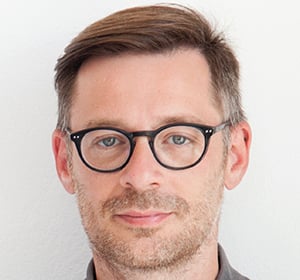
Panel: Evolution of operating systems for Quantum Computers
Iordanis Kerenidis received his Ph.D. from the Computer Science Department at the University of California, Berkeley, in 2004, under Umesh Vazirani. After a two-year postdoctoral position at the Massachusetts Institute of Technology with Peter Shor, he joined the Centre National de Recherche Scientifique CNRS in Paris as a permanent researcher. He has been the coordinator of a number of EU-funded projects including an ERC Grant, and he is the founder and director of the Paris Centre for Quantum Computing. His research is focused on quantum algorithms for machine learning and optimization, including work on recommendation systems, classification, and clustering. He is currently working as the Head of Quantum Algorithms Int. at QC Ware Corp.
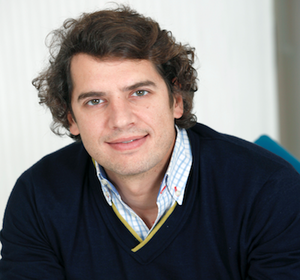
Panel: User experiences: Financial services industry
Carlos is passionate about how exponential technologies are redefining society, business, and economics by allowing reliable interaction models. He began programming mobile multiplayer games, where he learned the importance of design and the user experience, incentive models, and the complexity of creating distributed systems.
He transitioned from a consultant-based practice to BBVA, where he has had the privilege of living the journey of transformation, as BBVA moves from a traditional financial institution to a global digital bank. He continues to be enthusiastic about the journey to digital, with the purpose of generating prosperity in society.
When travel permits, he also shares experiences, ideas, and opinions in various business schools and universities as a visiting professor. He is currently obsessed with the convergence of society, economics, and technology and how the latter is setting the pace. He has collaborated in the creation of several startups around Fintech, IoT, and new governance models that support how advances in technology and help s people make smarter decisions.
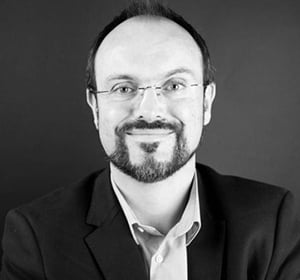
Panel: Quantum emulators and hybrid systems
Victor Land is the institute coordinator for QuSoft, the Amsterdam-based Research Center for Quantum Software. In this role, he supports the directors of the center and acts as a linking pin to external parties, including the different universities involved in QuSoft. Moreover, he is part of the Quantum Delta NL team, that works to strengthen the quantum technology community in the Netherlands, as well as Quantum. Amsterdam, which seeks to initiate R&D collaborations towards commercially applicable quantum algorithms.
He has a background in astrophysics (with an MSc in General Astrophysics from Utrecht University) and physics (with a Ph.D. from Utrecht University and the FOM Institute for Plasma Physics). He researched early stages of planet formation in complex ionized media around young stars at the Center for Astrophysics, Space Physics, and Engineering Sciences at Baylor University in Waco, Texas, the United States of America as a post-doctorate and research associate. He continued his career in science support and policy as a program coordinator at FOM, working in the office for public-private partnerships, after which he was the project officer for the Applied Physics department at the Eindhoven University of Technology.
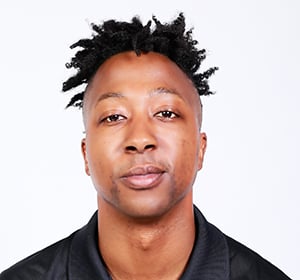
Panel: Emerging technologies and companies in quantum computing
Tony Lawrence is the CEO and Founder of Light Rider, a quantum LiFi company, and VOR Technology, a provider of cutting-edge cyber, technology. He has an extensive background in cybersecurity, working at the NSA, U.S. Army and CYBERCOM. By the age of 22 he was working for the Director of NSA and helped create modern day cyber as we know it. Now, Tony is bringing NSA-level security to people’s homes and office with Light Rider’s quantum LiFi products.
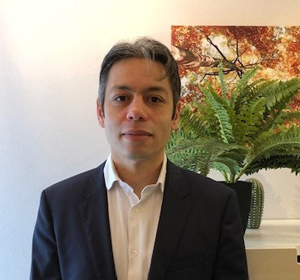
Panel: Quantum Policy in Europe
Pascal Maillot is Deputy Head of Unit of the newly created High-Performance Computing and Quantum Technology unit in Directorate General Communications Networks, Content and Technology at the European Commission. He is in charge of the one-billion euro Quantum Flagship initiative launched in October 2018 with its first 20 projects.
He graduated as a computer engineer in 1998 and had several positions in the private and public sector as a telecom project manager and cyber-security analyst.
He then moved to the quantum domain and focuses specifically on the future “quantum internet” interconnecting quantum computers, simulators, and sensors via quantum networks to distribute information and quantum resources securely all over Europe.
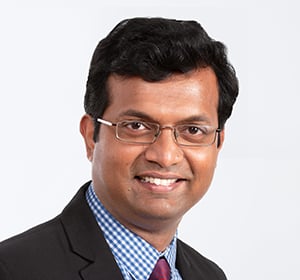
Panel: Emerging technologies and companies in quantum computing
Himadri Majumdar, Ph.D is the Program Manager for Quantum Technologies at VTT Technical Research Centre of Finland. Dr. Majumdar leads R&D service and partnerships with companies in Finland and globally, on Microelectronics, more recently on Quantum technologies and Systems. He has 20 years of experience in R&D, Business Development and Sales of Micro, nano and printed electronics. He is a trained experimental physicist with 20+ research articles in international journals. He has also co-supervised Ph.D students as Adjunct Professor at Tampere University and Åbo Akademi University in Finland. In his current role he helps companies, especially fabless start-ups, to utilize VTT’s R&D expertise and infrastructure to create new products and pave the path for them from lab to fab.

Panel: Quantum computing: Technical and architectural trends
Dr. Philip Makotyn is a business leader at Honeywell Quantum Solutions driving to commercialize next-generation quantum computing systems. Philip has more than a decade of experience in quantum sciences and a broad background in ultra-cold atomic physics, ion-trapping, and electromagnetics. He holds a Ph.D. in Atomic and Molecular Physics from the University of Colorado and Bachelor’s Degrees in Electrical Engineering and Physics from the University of Illinois and Elmhurst University, respectively.
Honeywell Quantum Solutions is shaping the future of quantum computing through the commercialization of trapped-ion-based quantum computers which will deliver high-fidelity quantum operations with all-to-all qubit connectivity to enable high-depth quantum circuits and novel quantum algorithm development.
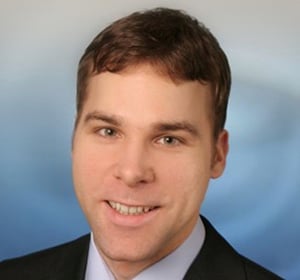
Panel: Applications and use cases for quantum communications
Christoph Marquardt is the head of the quantum information processing group at the Max Planck Institute for the Science of Light in Erlangen. In 2008 he worked as metrology scientist at Carl Zeiss Laser Optics and then returned to academia. In 2012-2014 he was Alcatel Lucent Bell Labs guest professor at the University of Erlangen-Nuremberg and in 2013-2014 he was visiting researcher at the Technical University of Denmark. The topics of his quantum information processing group cover a broad range of quantum optics and quantum information experiments, from nonlinear photonics to satellite-based quantum key distribution and quantum limited receivers in optical fibre networks. Christoph Marquardt serves in several advisory committees of the European Union and German government and acts as a scientific advisor for the spin-off project “Infiniquant”. He is active in several EU and national quantum communication research projects and is taking care of the holistic system design of the German BMBF QuNET initiative.
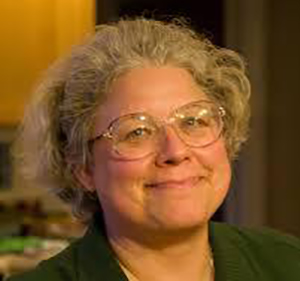
Panel: Quantum computing: Technical and architectural trends
Catherine McGeoch received her doctorate in Computer Science from Carnegie
Mellon University in 1987 and taught at Amherst College for 30 years. In 2014 she traded academia for industry and joined the technical staff of D-Wave Systems. Her research focus is on empirical analysis of algorithms and heuristics, and more recently on performance evaluation of quantum algorithms and computing systems. She was co-founder of the DIMACS Implementation Challenges and the ALENEX conferences on
algorithm engineering and experimentation; and she is past editor in chief of the ACM Journal on Experimental Algorithmics. She has authored two books, one on guidelines for experimental analysis of algorithms, and one on adiabatic quantum computation and quantum annealing.
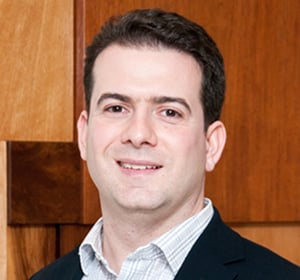
Panel: Quantum-safe solutions
Dr. Mosca is a founder of the Institute for Quantum Computing, Professor in the Department of Combinatorics & Optimization at the University of Waterloo, and a founding member of the Perimeter Institute for Theoretical Physics.
He is globally recognized for his drive to help academia, industry, and government prepare our cyber systems to be safe in an era with quantum computers. He co-founded evolutionQ Inc. to provide services and products that enable organizations to evolve their quantum-vulnerable systems and practices to quantum-safe ones. He was a founder of the ETSI-IQC workshop series in Quantum-Safe Cryptography. He co-founded softwareQ Inc. to help organizations benefit from the power of quantum computers.
He worked on cryptography during his BMath (Waterloo) and MSc (Oxford) and obtained his Doctorate (Oxford) on Quantum Computer Algorithms.
His research interests include quantum computation and cryptographic tools designed to be safe against quantum technologies.
Dr. Mosca’s awards and honors include Fellow of the Institute for Combinatorics and its Applications (since 2000), 2010 Canada’s Top 40 Under 40, Queen Elizabeth II Diamond Jubilee Medal (2013), SJU Fr. Norm Choate Lifetime Achievement Award (2017), and a Knighthood (Cavaliere) in the Order of Merit of the Italian Republic (2018).
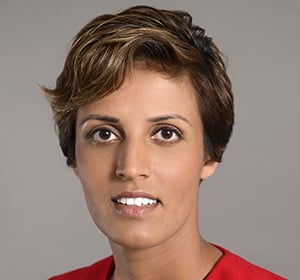
Panel: Evolution of the Quantum Internet
Panel: Keynote: Quantum Networking: Emerging Applications and What's Needed
Prineha Narang is an Assistant Professor at the John A. Paulson School of Engineering and Applied Sciences at Harvard University. Prior to joining the faculty, Prineha came to Harvard as a Ziff Fellow and worked as a Research Scholar in Condensed Matter Theory at the MIT Department of Physics. She received an M.S. and Ph.D. in Applied Physics from the California Institute of Technology (Caltech). Prineha is the CTO and co-founder of a Boston-based VC-backed startup, Aliro Quantum, and working towards the commercialization of quantum technologies. Aliro recently launched a series of products critical to the development of future quantum networks and scalable quantum information processing.
Prineha’s work has been recognized by many awards and special designations, including an NSF CAREER Award in 2020, being named a Moore Inventor Fellow by the Gordon and Betty Moore Foundation for pioneering innovations in quantum science and technology, CIFAR Azrieli Global Scholar by the Canadian Institute for Advanced Research, a Top Innovator by MIT Tech Review (MIT TR35), and a Young Scientist by the World Economic Forum in 2018. In 2017, she was named by Forbes Magazine on their “30under30” list for her work in quantum engineering. Prineha is also a part of DOE-led National Quantum Initiative Center and NSF-backed efforts in quantum information science announced in 2020. NarangLab’s research at Harvard focuses on how quantum systems behave, particularly away from equilibrium, and how we can harness these effects. By creating predictive theoretical and computational approaches to study dynamics, decoherence and correlations in the matter, NarangLab’s work would enable technologies that are inherently more powerful than their classical counterparts ranging from scalable quantum information processing to ultra-high efficiency optoelectronic and energy conversion systems. Outside of science, she is an avid triathlete and runner.

Panel: Evolution of operating systems for quantum Computers
Damien Nguyen is a physicist and software engineer/researcher in Huawei’s Quantum Computing group. He is also one of the maintainers of the ProjectQ framework and language for quantum computing. On behalf of Huawei and ProjectQ, he is responsible for the design and development of the ProjectQ quantum compiler and some related projects. His education is in Physics engineering (MSc. EPFL, Lausanne) and Physics (Ph.D. University of Basel).
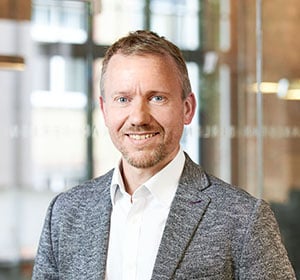
Panel: VCs and the quantum sector in Europe
Stephen is an experienced technologist and engineer with a passion for setting strategy, introducing technology innovation, and building high-performing teams for ambitious global businesses.
Stephen advises the investment team on new opportunities, performs technology due diligence, as well as sources investments in the Deep Tech space, where he has also led transactions in AI/ML, B2B SaaS, and Data Analytics companies. He advises portfolio companies on product and technology-related matters as well as setting Lakestar’s internal technology strategy.
Prior to Lakestar, Stephen worked at Goldman Sachs for 20 years in various global offices. There, he was a managing director, led complex global engineering and change groups, and served as Chief Technology Officer in a number of global services.
He is an external speaker on technology and investment trends at universities and conferences such as NOAH, UK Parliament & Internet, Global Tech Advocates, FIMA, and AISummit. He also mentors tech-focused disruptive start-ups. He graduated with a BSc in Computer Science from Southampton University
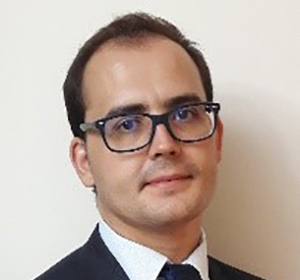
Panel: Jobs and education in the quantum technology sector
Ricardo Pérez-Castillo holds the Ph.D. degree in Computer Science from the University of Castilla-La Mancha (Spain). He works at the IT & Social Sciences School of Talavera at University of Castilla-La Mancha where he is vice dean. His member of the aQuantum scientific research team where he works on quantum software engineering. His research focuses on the migration of classical systems to quantum architectures and classical-quantum software reengineering. He is one of the promoters of the Talavera Manifesto for Quantum Software Engineering, as well as the organizer of various international workshops on this topic, like QANSWER’20 (www.qanswer.site) or Q-SET’20 (quset.github.io).

Panel: Quantum computing: Technical and architectural trends
Ravi Pillarisetty is working on leveraging Intel’s expertise in transistor manufacturing towards building a commercial quantum computing system. He joined Intel in 2005 and has worked on a variety of research topics across the transistor and memory landscape. This included serving as the device lead on the team that created the 22nm node prototype FinFet transistor. For this work, he received an Intel Achievement Award, which is the company’s highest honor. Additionally, he has been involved in research on several non-silicon channel materials, including having led Intel’s germanium transistor research program. He is extensively involved in Intel’s external research activities having served as co-chair of Intel’s Corporate Research Council, which manages all of Intel’s external university investments spanning the entire compute stack. Additionally, he serves as Intel’s Scientific Advisory Board representative for the NRI and N-CORE SRC research consortia. An avid inventor, he has been granted over 245 patents related to semiconductor technology and has been recognized as the recipient of Intel’s Technology and Manufacturing Group Inventor of the Year Award. He completed his Ph.D. from Princeton University in 2005, where his thesis focused on low-temperature electron physics and his ScB from Brown University in 1999.
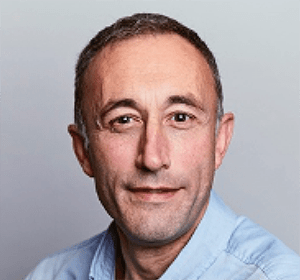
Panel: Applications and use cases for quantum communications
ICREA Prof. at ICFO Valerio Pruneri, project coordinator for CiViQ, is an ICREA Industrial Professor, Corning Inc. chair and group leader at ICFO. Previously he worked in industry, Avanex Corporation, formerly Corning OTI and Pirelli Optical Technologies. He has over 50 granted or pending patent families and 70 invited talks at major international conferences in the field of photonics, optical materials, multifunctional surfaces and quantum optics. His research at ICFO has so far lead to two spin-offs (www.quside.com and www.sixsenso.com). For his research and technology transfer effort, he received the Philip Morris Prize, the Pirelli Research Fellowship, the IBM Faculty Award, the Paul Ehrenfest Best Paper Award, the Duran Farell Prize and the Corning Inc. Chair.
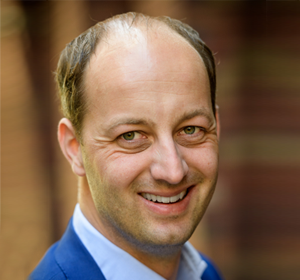
Panel: Quantum-safe solutions
Panel: Applications and use cases for quantum communications
At present Jesse Robbers is “Co-Founder & Director” at QuantumDeltaNL. This new institution was recently established by the Dutch quantum ecosystem of companies, knowledge institutes, and governmental institutions, to accelerate the leading role of the Netherlands in quantum technology. Besides his activities in the Quantum domain he is Sr. Business Consultant at TNO ICT with a specialism in the field of Digital Infrastructure, Internet, Cloud, and Media.
In the past Jesse was CCO at the “Amsterdam Internet Exchange (AMS-IX)” and “Technical Director Benelux” at “Ericsson Broadcast and Media Services”. He fulfilled various roles at KPN, focusing on internet distribution networks and media propositions. Jesse has held several positions in organizations to stimulate new international and joint industry developments, like “Digital Infrastructure Nederland (DINL)”, the “Dutch Media Hub (DMH)” and “Consortium Board Member” at the “National Agenda Quantum Technology (NAQT)”
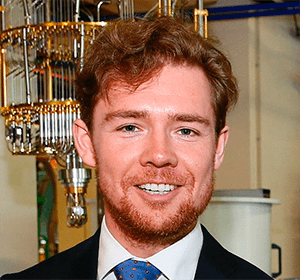
Panel: Emerging technologies and companies in quantum computing
During his Ph.D. (cum laude) in the group of Prof. DiCarlo, Adriaan worked on the control for superconducting quantum systems. He has developed new calibration and characterization protocols, as well as a new type of two-qubit gate, and made key contributions to the development of Quantum Infinity, a transmon-based full-stack quantum computer that preceded QuTech’s Quantum Inspire platform. Adriaan has worked closely with experts from all layers of the stack, which was formally recognized through the Zurich Instruments Pioneer Award, and resulted in award-winning papers. Before starting his Ph.D., Adriaan was on the executive board of a non-profit business consultancy.
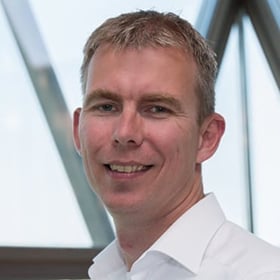
Panel: Jobs and education in the quantum technology sector
With a background in Business Mathematics, Dennis has founded and run several companies over the last 20 years, primarily in the digital innovation space. His latest efforts now focus on defining and setting up a new nonprofit entity called Quantum for Business. Quantum for Business is a uniquely positioned central platform of quantum technology in Europe that educates, connects and guides frontrunner businesses who want to lead the quantum revolution.
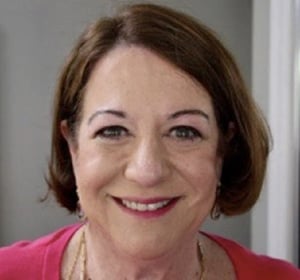
Panel: Presentation by Women In Quantum
Denise Ruffner is a Chief Business Officer and a member of the Company’s executive leadership team. In this role, she manages and coordinates CQC’s business development activities focusing on building CQC’s strong growth agenda, fostering client development and loyalty, and managing corporate strategy and key relationships.
Denise has been recognized for innovation, sales leadership, and strategic planning throughout her 18-year career at IBM. During this tenure, she held a variety of roles which included responsibility for quotas up to $750 million in annual revenue. She joined CQC from the IBM Systems Group Quantum Computing team where her leadership responsibilities included developing and heading the IBM Q Startup Program, in addition to leading the IBM Q Network Ambassador team for the North America, Latin America and Asia regions. Prior to this, Denise was the Worldwide Genomics Sales Leader for IBM Systems Group.
Denise holds a Master’s degree in Neurobiology and Molecular Biology from the University of Pittsburgh.
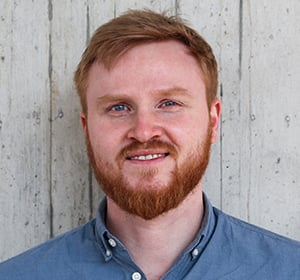
Panel: Cryo, control and subsystems for quantum computing
Dr. Tomek Schulz is a physicist and entrepreneurial mind working on innovative future technologies that create value for society.
He gained project management and leadership skills in the academic sector as well as in the industry at an innovative consultancy company, where he built artificial intelligence and internet of things enabled solutions for a variety of industry sectors using methods such as agile project management, rapid prototyping, and design thinking.
Recently, he co-founded the cryogenics company kiutra, which has the mission to make cryogenic cooling scalable and easy. The company’s vision is to provide the cooling backbone for the second quantum revolution.
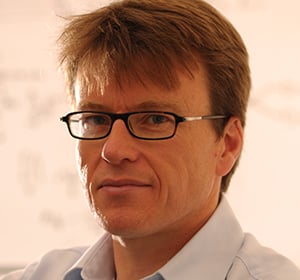
Panel: Markets for QKD systems
Andrew Shields leads R&D and business development on quantum technologies in Toshiba Europe. According to Google Scholar, he has published over 500 research papers and patents in the field of quantum devices and systems, which have been cited over 20,000 times and has a Hirsch-index of >70. He is a member of the leadership team of the OpenQKD consortium in Europe and the EU Strategic Research Agenda Working Group. He was a co-founder of the Industry Specification Group for QKD of ETSI and served for several years as the Chair. In the UK, he leads the AQuaSeC project developing next-generation quantum communication technology. He is a Fellow of the Royal Academy of Engineering and was awarded the Mott Medal and Prize for research on quantum photonics and its applications.
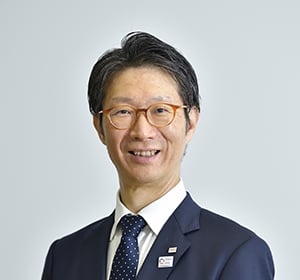
Panel: Keynote: Sponsor
Taro Shimada joined Toshiba in October 2018 as Corporate Digital Business Chief Strategy Officer. In April 2019 he was appointed Chief Digital Officer, responsible for supporting Toshiba’s digital transformation and spearheading strategic business creation and promotion.
In carrying out these responsibilities, Mr. Shimada draws on a wealth of experience in hardware development, including aircraft; in process consultation ranging from automobiles to precision machinery design and heavy industry; and in product life cycle management software. An expert in Factory Automation, he has advised many of Japan’s leading global manufacturers on digitization, and is currently an advisor to the Robot Revolution & Industrial IoT Initiative, and to the IoT Acceleration Lab. He has also contributed to the activities of Industrie 4.0 in Germany and Connected Industries in Japan.
Mr. Shimada began his career in1990 at ShinMaywa Industries Kobe, where he worked on aircraft for Boeing and McDonnell Douglas. In 1999 he joined Structural Dynamics Research Corporation, a part of Siemens, and took on a series of progressively senior post at Siemens KK, and at Siemens HQ in Germany. Immediately prior to joining Toshiba, Mr. Shimada was Executive Operating Officer at Siemens K.K.
Mr. Shimada is a graduate of Konan University. His relaxes by playing the drums, and enjoys all genres of music.
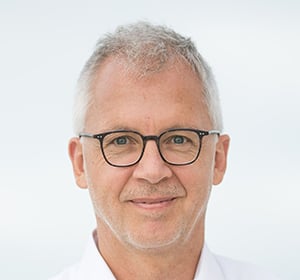
Panel: User experiences: Aerospace and automotive.
Dr. Thomas Strohm received his Ph.D. in 1999 at the MPI for Solid State Research in Stuttgart where he did theoretical work on high-temperature superconductors in Prof. Cardona’s group. Thereafter, he joined the Corporate Research division of Robert Bosch GmbH. For more than 10 years, he worked in SW engineering and as a system and SW architect. Among other projects, he was responsible for the development of a SW engineering curriculum and until the end of 2016 gave courses on System and SW architecture at Bosch. In 2013, he started scouting Quantum Cryptography and, later, Quantum Computing. Currently, Thomas is coordinating the Quantum Technologies activities at Bosch. He is also part of Europe’s Quantum Community Network (QCN) and the Coordination Office (FCO) of Europe’s Quantum Flagship Initiative and furthermore active in founding the European Quantum Industry Consortium (QuIC). Thomas is also part of the QRANGE public-funded project and contributes to the research on modeling quantum random number generators.
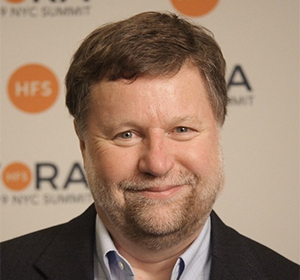
Panel: The Debate on Quantum Advantage
Bob Sutor has been a technical leader and executive in the IT industry for over 30 years. He’s the author of a book about quantum computing called Dancing with Qubits that was published in late 2019. This was recently rated #1 in the BookAuthority list of13 Best New Quantum Computing Books To Read In 2020.
More than two decades of his career has been spent in IBM Research in New York. During his time there, he worked on or led efforts in symbolic mathematical computation, optimization, AI, blockchain, and quantum computing.
Sutor was also an executive on the software side of the IBM business in areas including emerging industry standards, software on Linux, mobile, and open source. He’s a theoretical mathematician by training, has a Ph.D. from Princeton University, and an undergraduate degree from Harvard College. He spends every free non-freezing moment he has in the NY Adirondack Mountains.

Panel: Applications and use cases for quantum communications
After a Ph.D. in ‘quantum oscillations in heavy fermion compounds’ and a postdoc in the physical asymptotics group of Bristol University, Andrew worked in the area of mathematical modeling, firstly at BAE Systems, then at Airbus Group Innovations, and latterly in the Space Systems branch of Airbus. His research interests have covered a number of areas, ranging from electromagnetics, antennas, propagation, stealth, and optics to communication networks and QKD. He is currently the technical point of contact for quantum communications at Airbus Space Systems and the technical lead of the EC project QOSAC.
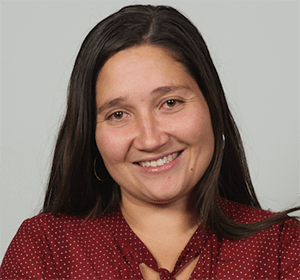
Panel: Quantum emulators and hybrid systems
Ariana is an HPC/Quantum computing consultant at SURF (the Dutch ICT provider for universities and research centers).
She did her bachelor in Physic in Mexico, followed by an MSc in Physics and Material Science in a joint program between the ENS-Lyon and the University of Amsterdam.
In 2016 she finished her Ph.D. (cum laude) in the Computational Chemistry group at the University of Amsterdam followed by a Postdoc in Polymer Chemistry at the same university.
She joined SURF about 2 years ago to help with the quantum computing projects and is currently working in several quantum projects related to chemistry, quantum internet, emulators, etc., with different Dutch universities.
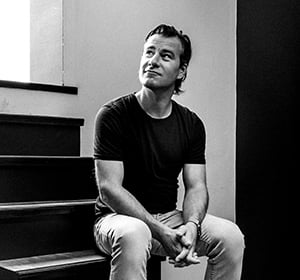
Panel: VCs and the quantum sector in Europe
Ton is the founder of PHX (thephx.co), a global community that connects the dots between the world’s most original thinkers, scientists, creatives and artists, top-tier investors, founders, and ultra-high net worths from Europe and the US, with a yearly gathering taking place on an island near Amsterdam (Check out his essay on Medium for a complete backdrop).
Next to that, he’s the Investor In Residence at Techleap.nl working closely together with HRH Prince Constantijn of Oranje.
Founder and former Partner at Deeptech venture firm 01Ventures.
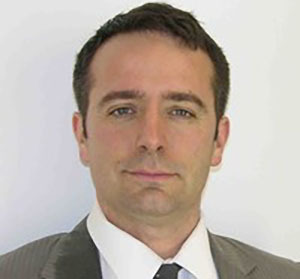
Panel: Evolution of the Quantum Internet
Mathias Van Den Bossche is in charge of R&D in telecom & navigation systems at TAS. Mathias holds a PhD in theoretical quantum physics and has been working in the field of strongly correlated fermions for 7 years before turning to space industry. He Joined the Galileo programme in its early stages where he was in charge of the Ground Mission Segment performance, and system architecture simplification in the FOC phase. He conducted technical business development activities in Europe and America for TAS before becoming the programme manager of KASS (EGNOS in Korea). He is now especially in charge of the TAS roadmap on quantum technologies – relying for this on the long Thales history in this domain, and developing new concepts and projects.
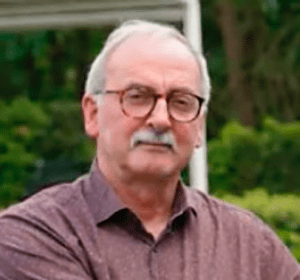
Panel: Cryo, control and subsystems for quantum computing
Dr. Hans van den Vlekkert has started his career at Cordis Europe as a chemical engineer responsible for sensor development. After several jobs in Netherlands and Switzerland, he founded in 2001 LioniX, known nowadays as LioniX International. He started over 20 companies over the past 20 years and his latest venture is QuiX BV, that is aiming at developing a photonic quantum processor for quantum computing.
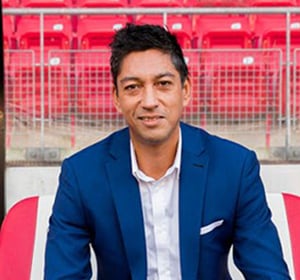
Panel: User experiences: Financial services industry
Dimitri is a full-stack IT & Business developer with a broad range of technical, management, and commercial skills. Dimitri has built several high available and high-performance internet environments, and managed and built networks for several customers as a project manager and in technical roles, including a 40+ fiber uplink for the LOFAR radio telescope.
After a 10 year period of working on several start-ups in different roles (CTO, COO, Full Stack IT), and after making the last one successful, Dimitri started working at ABN AMRO Technology Lab to explore new technologies that can be applicable for the bank in 5 years and beyond. Dimitri is responsible for the creation and execution of the Quantum Program within the bank, leading 4 Quantum projects, working with experts in the field of Information Security, Cryptography, IT, and Data Science & Mathematics.
Next to his Quantum work, Dimitri is also responsible for an experimental High-Performance Cluster at ABN AMRO, where new experimental hardware and software is deployed and tested.

Panel: Cryo, control and subsystems for quantum computing
Amber is co-founder and business developer for Orange Quantum Systems. Amber moved from Belgium to the Netherlands in 2011 to study Aerospace Engineering at the TU Delft. He co-founded the automated coating company Qlayers BV in 2017, and the Aerospace Innovation Hub at the TU Delft in 2018. This gives him experience in bootstrapping high-tech companies. Working at TNO since 2019, he analyzed the market of quantum computing and has applied this insight to Orange QS as business developer.
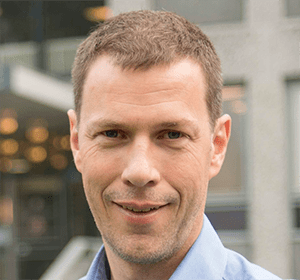
Panel: The Debate on Quantum Advantage
Prof. Lieven Vandersypen is co-founder of QuTech, co-director of the Kavli Institute of Nanoscience and Antonie van Leeuwenhoek Professor at Delft University of Technology, the Netherlands. He received a PhD from Stanford University (2001) for the first implementation of quantum algorithms in the lab, using nuclear magnetic resonance. After moving to Delft, where he established his own group in 2003, he pioneered the control and read-out of single electron spins in semiconductor quantum dot arrays. Lieven Vandersypen is a recipient of the Nicholas Kurti European Science Prize (2008) and the IUPAP Young Scientist Prize for Semiconductor Physics (2008), was a member of the “The Young Academy” of the KNAW (2007-2012), and is a member of the Royal Holland Society of Sciences and Humanities (KHMW).
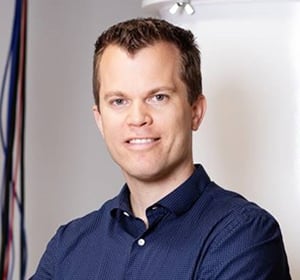
Panel: Jobs and education in the quantum technology sector
Menno Veldhorst is a group leader at QuTech and he leads the QuTech Academy. Veldhorst is an expert in quantum computation with quantum dots and was the first to realize a universal quantum gate set with silicon qubits, which opened a path to quantum technology based on advanced semiconductor manufacturing. His group recently advanced the state-of-the-art of quantum dot qubits by demonstrating a four-qubit germanium quantum processor. For his contributions, Veldhorst received several prices including the Nicholas Kurti Science prize by Oxford Instruments, and Veldhorst is included in MIT Technology Review’s prestigious list of 35 innovators under 35 as a visionary. As QuTech Academy lead, Veldhorst aims to prepare society and industry for the quantum revolution, and the online courses provided by QuTech Academy has already attracted over 50.000 students.

Panel: Jobs and education in the quantum technology sector
Dr. Araceli Venegas-Gomez, Founder and CEO of QURECA Ltd.
Dr. Araceli Venegas-Gomez spent several years working for Airbus in Germany and France as an aerospace engineer, before falling in love with quantum mechanics. She then decided to follow her passion for physics and moved to Scotland to pursue a Ph.D. in quantum simulation at the University of Strathclyde.
Following discussions with the different quantum stakeholders she had over the last years, Araceli identified the need to bridge the gap between businesses and academia, as well as to raise the quantum awareness to the general public. Continuing her work on outreach advocating quantum technologies, she was named the “quantum ambassador”, after winning the Optical Society Milton and Rosalind Chang Pivoting fellowship in 2019.
Araceli founded her own company called QURECA (Quantum Resources and Careers) to create a link between the different stakeholders in the quantum community through a common language, and to generate global opportunities with quantum technologies.
QURECA provides a range of professional services, business development, and the solution to the quantum workforce skills bottleneck: the first online platform for quantum training and resourcing, to support individuals and businesses to be part of the quantum revolution.

Panel: Quantum emulators and hybrid systems
Richard Versluis (Rotterdam, 1971) is a principal systems engineer at TNO and engineering lead of the quantum computing division at QuTech, the cooperation between the University of Delft and TNO. He studied Applied Physics at the University of Twente with a focus on control systems and computer engineering (1996) and has a Certified Systems Engineering Professional (CSEP) degree from the International Council on Systems Engineering (INCOSE). Richard worked as a systems engineer in various high-tech domains such as Semicon, space and oil and gas industry. Since 2014 Richard is working as TNO’s lead scientist and systems engineer in QuTech, contributing to QuTech’s ambition to build the world’s first Fault-Tolerant Quantum Computer. As the first step in this program, in April 2020, QuTech launched Quantum Inspire, Europe’s first public online quantum computing platform. Not only does Quantum Inspire include a 5 qubit processor named Starmon-5, but it also provides the world’s first public access to a spin qubit based processor named Spin-2. With this, it is also a unique platform giving direct access to two different qubit technologies.
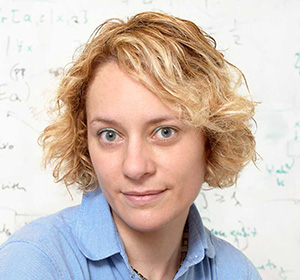
Stephanie Wehner is Antoni van Leeuwenhoek Professor at Delft University of Technology. As Roadmap Leader Quantum Internet and Networked Computing she is responsible for QuTech’s quantum networks objectives. Her passion is quantum communication in all its facets, and she has written numerous scientific articles in both physics and computer science. Stephanie is one the founders of QCRYPT, which has become the largest conference in quantum cryptography, the coordinator of the Quantum Internet Alliance, and has been awarded the KNAW Ammodo Science Award 2019. From 2010 to 2014, her research group was located at the Centre for Quantum Technologies, National University of Singapore, where she was first Assistant and later Associate Professor. Previously, she was a postdoctoral scholar at the California Institute of Technology in the group of John Preskill. In a former life, she worked as a professional hacker in industry.
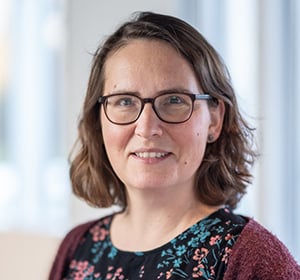
Panel: Quantum-hubs in Europe
Dr. Tatjana Wilk is the General Manager of the Munich Center for Quantum Science and Technology (MCQST), which is a Cluster of Excellence funded by the German Research Foundation (DFG) that started in January 2019. Before that, Tatjana worked several years as a senior researcher at the Max Planck Institute of Quantum Optics in Garching on single-atom cavity-QED. While coordinating a large European initial training network (ITN), Tatjana discovered her talent and her passion for science management. Now she enjoys working on forming a strong quantum community in Munich, on connecting academia and industry in Bavaria, on strengthening the education in quantum engineering and on engaging the public in quantum technology. With many supporters and like-minded colleagues in town, she is convinced that Munich is the ideal location for becoming the European Quantum Valley.
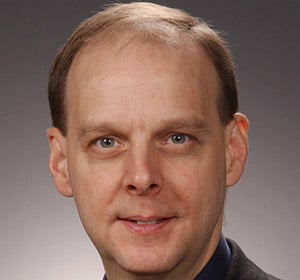
Panel: Quantum Policy in Europe
Dr. Carl J. Williams is the Deputy Director of the Physical Measurement Laboratory (PML), National Institute of Standards and Technology (NIST). He is a Fellow of the Joint Quantum Institute, the Joint Center for Quantum Information in Computer Science, and Adjunct Professor of Physics at the University of Maryland. Dr. Williams has led the Quantum Information Program at NIST since 2000, established the first interagency subcommittee for Quantum Information Science at the Office of Science and Technology Policy in 2008, and played in significant role in shaping the National Quantum Initiative and serves as a co-chair of the current Subcommittee on Quantum Information Science.
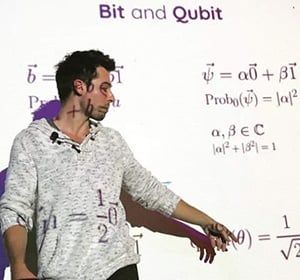
Panel: The Debate on Quantum Advantage
Dr. Zeng is a quantum computer scientist who leads the quantum computing research group at Goldman Sachs. He has worked on quantum computing in academia, industry, and non-profits, founding the Unitary Fund and serving as a Visiting Scholar at Stanford. Previously he was an early employee at Rigetti Computing where he ran product and software teams to launch their first quantum computers. He received his Ph.D. in quantum algorithm from Oxford and his BSc in Physics at Yale University.
